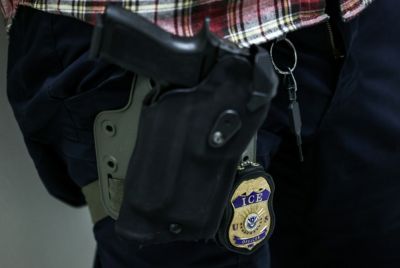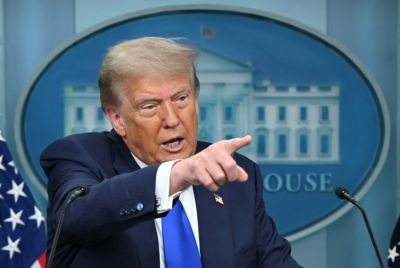Is Donald Trump a Dictator? The Question Haunting Washington as Troops Patrol the Streets
Legal experts and political scientists warn of increasing authoritarian signs while citizens and officials react to unprecedented military presence in US cities.

Donald Trump insists he is no dictator.
'I'm not a dictator. I don't like a dictator,' the President told reporters in the Oval Office this week.
Yet the remark came only weeks after he ordered armed soldiers and Humvee-style vehicles into Washington DC, insisting the National Guard was needed to tackle crime.
Critics argue the deployment was unnecessary and part of a broader pattern of strongman tactics, according to The Guardian.
A Pattern of Power Plays
The President has recently threatened to cut funding to universities, encouraged federal raids against outspoken critics, and launched lawsuits against media outlets that challenge him.
He dismissed the government's top labour statistician after jobs data displeased him and demanded that Barack Obama be investigated for 'treason', as previously noted in The Guardian's analysis from 2020.
Meanwhile, Trump's family has continued to profit from his presidency—a move that experts say blurs the lines between democratic norms and authoritarian behaviour.
Experts Sound the Alarm
Scholars who study authoritarianism say the signs are unmistakable. Kim Lane Scheppele, a professor at Princeton University, told The Guardian that she initially hesitated to describe Trump's America as a dictatorship but changed her mind following the National Guard mobilisation.
'If I was hesitating before, it's this mobilisation of the National Guard and the indication that he plans to overtake resistance by force that now means we're in it,' Scheppele said.
Trump has also threatened to send troops into Democratic-run cities such as Chicago, Baltimore, San Francisco, and New York, sparking outrage and accusations of abuse of power.
'He's really planning a military, repressive force... to put down resistance by force,' Scheppele warned.
Strongman Optics
Modern autocrats often try to mask their authoritarian tendencies, but Trump seems to relish the imagery.
A giant banner recently appeared on the Department of Labor building in Washington, showing Trump above the slogan 'American workers first.'
On his birthday, he staged a military parade and was reportedly furious that the soldiers did not look 'menacing' enough.
According to Steven Levitsky, a Harvard political scientist and co-author of the bestselling book How Democracies Die, Trump fits the mentality of a 'classic tin-pot dictator', though the US has not yet reached outright dictatorship.
'Dictators everywhere claim they're not dictators, and then claim the people want one,' Levitsky explained.
The Road Ahead
Levitsky and other experts warn that the US risks becoming what political scientists call a 'hybrid regime'. Countries such as Hungary under Viktor Orbán, Turkey under Recep Tayyip Erdoğan, and Venezuela under Nicolás Maduro are often cited as examples—systems where opposition and elections exist but power is heavily skewed by institutional abuse and media crackdowns.
Levitsky described the danger in the US as a 'non-zero chance' that Trump could invoke emergency powers to undermine the constitution and elections.
More likely, he said, is a slide into 'mild authoritarianism', where opposition survives but faces an uneven playing field.
The Verdict
So, is Trump a dictator? In strict political science terms, not yet. But with troop deployments, attacks on media, threats against opponents, and a base of voters cheering him on, the signs of authoritarianism are clear.
Whether the US is moving toward outright dictatorship or stopping just short, one thing is certain: American democracy has never looked more fragile.
© Copyright IBTimes 2025. All rights reserved.




















